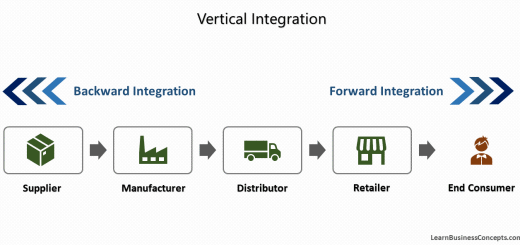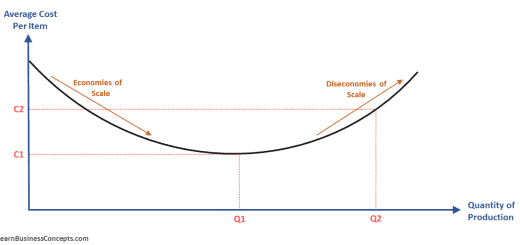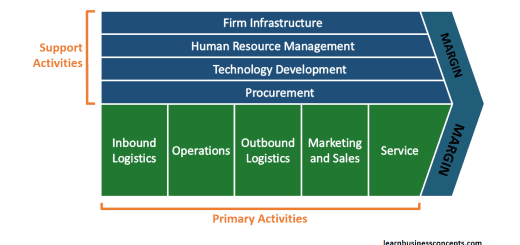What is the Typical MBA Program Curriculum?
Overview of an MBA
A Master of Business Administration (MBA) is a qualification that equips theoretical and practical training to improve business knowledge. An MBA is outlined to help graduates to master their knowledge through lectures, case studies, group activities, simulations, guest lectures from industry leaders, prototyping, role-playing scenarios, assignments, research, and much more.
Most major universities and colleges in the world facilitate MBA programs range from one and half years to four years.
| Types of MBA Program | Duration (In General) |
|---|---|
| Full Time MBA | 2 Years |
| Part Time MBA | 3 to 5 Years |
| Part Time Online MBA | 3 to 5 Years |
| Accelerated MBA | 12 to 18 Months |
| Executive MBA | 2 Years |
Typical MBA Program Curriculum (MBA Course Outline)
According to a survey done over 300+ leading MBAs worldwide, the following is the typical MBA program curriculum. The outline of an MBA course is as follows,
Core Modules of an MBA
- Corporate Finance
- Strategic Management
- Financial Accounting
- Management Accounting
- Business Ethics
- Human Resource Management
- Organizational Behavior
- Information Technology / Information Management
- Economics (Macroeconomics, Microeconomics, Managerial Economics)
- Marketing
Elective Modules of an MBA
- Entrepreneurship
- Probability Modeling and Statistics
- Business Analytics
- Political Science
- Personal Improvement and Leadership
- Operations Management
- Supply Chain Management
- Skill Improvement (Management, Leadership, Negotiation, etc.)
Each MBA consist of their specialized course curriculum and the college/university may not include all of the above content in their MBA offering.
Explanation of the Core Modules of an MBA
Core modules of a typical MBA are described below,
1. Corporate Finance
Corporate finance is a subfield of finance that deals with funding sources, company valuation, the structure of corporate capital, investment decisions, analysis of financial resources, etc.
Corporate finance is important for an executive manager to plan the finance, raise funds, make investment decisions, raise shareholder value, risk management of finance, appraise investments, and monitor the capital structure.
2. Strategic Management
Strategic management provides overall direction to a company by specifying the corporate objectives, policy development, and execute plans to achieve the defined objectives. There are many models and frameworks to assist management in strategic decision-making.
Strategic management helps executive managers think about and plan for the company’s future existence, achieving the visionary responsibility of the director perspective, set the direction for the organization and its employees, make decisions that affect the long-term profitability and sustainability.
3. Financial Accounting
Financial accounting mainly consists of the summary, analysis, and reporting of financial transactions of the business. Financial transaction information is reported through four statements mainly: the income statement, the balance sheet, the cash flow statement, and the statement of retained earnings.
Learning about financial accounting is important for an executive manager because it helps them gain knowledge of keeping the track of corporate finance transactions. It helps to understand the financial performance of the business, make sound financial decisions, communicate business finance to outside parties such as shareholders, regulators, creditors, and investors.
4. Management Accounting
Management accounting (also known as cost accounting) is the process of providing financial information to the senior managers for various decision-making. This focuses on understanding the company’s cash flows, various costs, project profitability, internal rate of return, etc. This information is translated into reports and presentations that help management on making decisions related to capital budgeting and future investments.
Management accounting information helps executive managers to make various key decisions such as, decide on the prices of products by analyzing all the cost-related, market-related, and profit-related information.
5. Business Ethics
Business ethics focus on the ethical conflicts that can arise in a business environment. Ethical norms, values, and principles guide a sustainable business.
In the current business environment, it is more important for executive managers to have strong ethical behavior. Social media plays a vital role today to rapidly spread the news even it is a minor indiscretion. Lawmakers and the public have a high level of expectation of sustainable business in every aspect.
6. Human Resource Management
Human Resource Management is the process of recruiting, training, performance appraisal, deciding compensation, and providing benefits for their employees. This focuses on policies and practices that are used to improve employee productivity.
HR plays a key role for executive management because it is essential to develop and motivate the employees to get the best outcome.
7. Organizational Behavior
Organizational behavior is the behavioral dynamics that occur between groups and individuals in an organization. This is the interface between human behavior and the company.
Organizational behavior is important for management because of the effect of social and environmental factors that affect the way employees or teams work. The way people interact and collaborate is a dependent factor for the success of the organization.
8. Information Technology / Information Management
Information has become one of the main ingredients of the company’s success. Internet and email play a key role in employee communication. Enterprise resource management (ERP) systems will help the company trace raw materials and products. Big data, artificial intelligence, and other technologies play a vital role in the success of the company.
In today’s business world, the management needs to have good knowledge about information technology.
9. Economics
Every business is influenced by certain economic conditions in the business environment. Executive management does not have any information related to future costs, revenue, or profit. The decision should be made based on past data with the forecast on the national or global economic conditions.
Economics provides insights into how businesses make choices about how to allocate their resources in the most optimum way while maintaining the appropriate risk levels. Economics can be segregated into macroeconomics, microeconomics, and managerial economics.
10. Marketing
Marketing refers to actions done by a company to promote the sales of a product or service. Marketing aims to deliver value for prospects and consumers through content, growing brand loyalty, and eventually increasing sales.
As a manager, it is important to have the knowledge of marketing because it allows businesses to maintain sustainable relationships with their audience.
Explanation of the Elective Modules of an MBA
Elective modules of a typical MBA are described below,
1. Entrepreneurship
Entrepreneurship is the ability of an individual to manage and control an enterprise and direct it to make a profit.
Learning about entrepreneurship is important to develop unique skills and think outside the box. It helps individuals to see opportunities, build confidence, and take risks.
2. Probability Modeling and Statistics
Probability and statistics are concerned with the laws directing random events. This includes collection, analysis, interpretation, and display of numerical data. Statistics is focused on the manipulation of data, including ways to collect, review, analyze, and identify conclusions from data.
3. Business Analytics
Business analytics is the method of processing the data to determine a purpose to make informed business decisions.
Business analytics focuses on developing new insights and understanding of business performance based on data and statistical methods. Business analytics help companies to reduce risks by helping management to make the right decisions based on available data.
4. Political Science
Political science broadly refers to the study of governments, public policies, and political behavior from a global perspective. This focuses on the theory and practice of government and politics at the local, state, national, and international levels.
5. Personal Improvement and Leadership
Self-improvement is key for any person to improve skills across a range of areas. As a manager, this helps to improve the positive leadership traits to influence personal and corporate success. Effective personal leadership training can help individuals realize their full potential in all aspects.
6. Operations Management
Operations management is focused on the optimization of the business operations in the production of goods or services. This is related to the administration of business practices to create the highest level of efficiency possible within an organization. Operations management is primarily concerned with planning, designing, and controlling production.
7. Supply Chain Management
A supply chain includes the end-to-end businesses processes involved in creating a product from raw materials to finished items. Supply chain activities cover everything from product design, raw material sourcing, manufacturing, warehousing, and transportation, as well as the information systems and processes which facilitate the entire process.
8. Skill Improvement
MBAs focused on improving various skills such as management skills, leadership, negotiation, personal development, presentation, etc. These skills are essential for an executive to drive the business to success. An MBA is outlined through lectures, case studies, group activities, role-playing scenarios to improve these skills.


